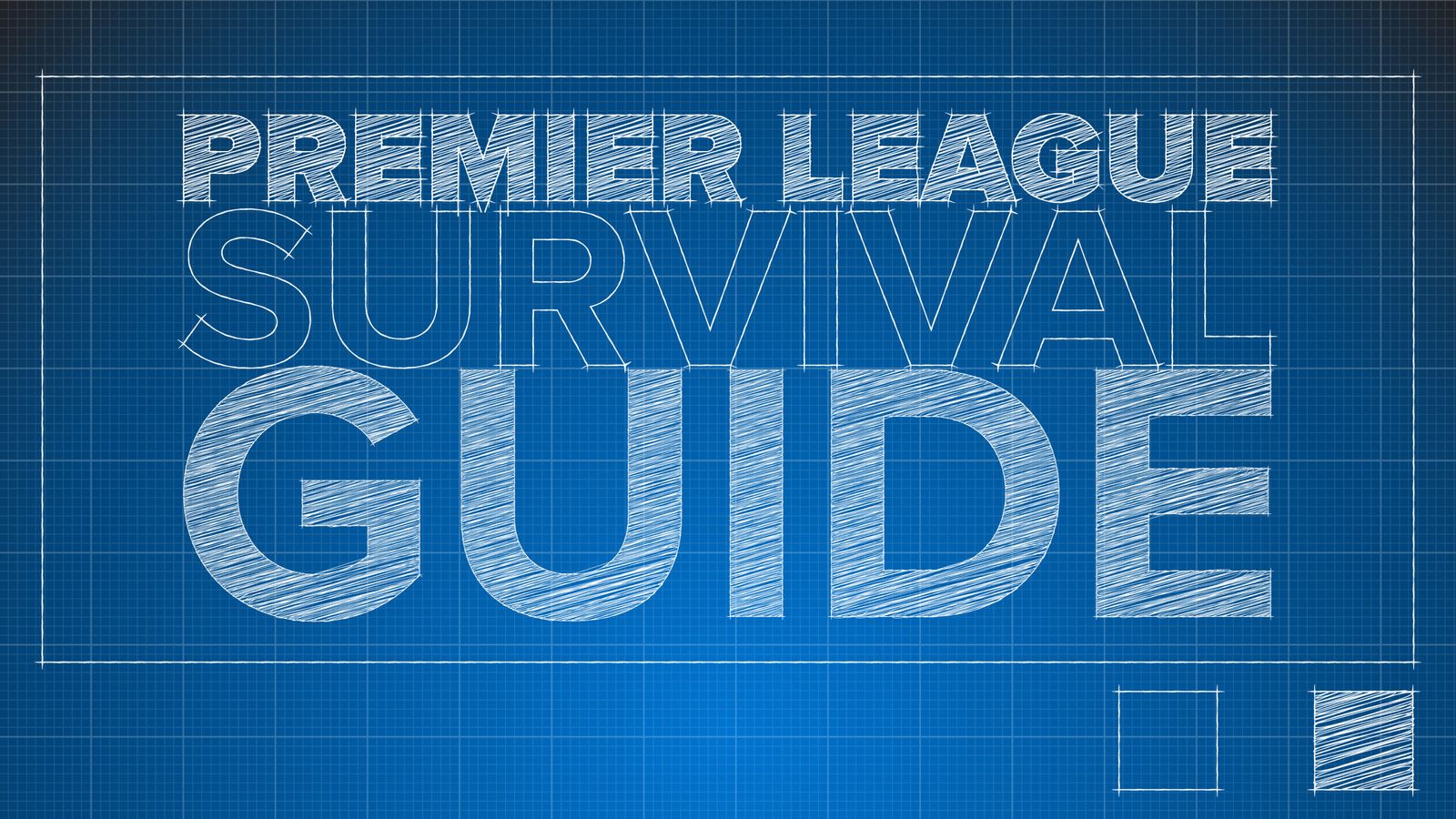Premier League survival guide: How clubs can avoid relegation to the Championship | Football News
It’s early doors but Burnley achieved lift-off with their first point of the campaign in a 1-1 draw with Nottingham Forest on Monday Night Football – but what do teams scrapping at the bottom need to survive in the Premier League?
Five weeks into the campaign, Luton remain pointless after a 1-0 defeat to Fulham at the weekend, while Everton and Sheffield United remain locked with Burnley on a single point – with Paul Heckingbottom’s side looking down at the relegation zone on goal difference.
The margins are likely to remain tight come May, but what are the key characteristics of successful relegation battlers?
Here, Sky Sports statistician Will Rickson explores the numbers to uncover how many wins, points and goals are typically required to avoid the drop – in addition to revealing how defensive solidity and different playing styles affect the outcome.
How many wins and points?
Eleven wins is a good place to start. No team has been relegated in a 38-game Premier League season with 11 or more wins, whereas nine teams have been relegated on 10 wins. However, that is now very rare, too – only Cardiff in 2018/19 have been relegated with 10 wins in the last 11 seasons, compared with five teams in the 10 seasons before that.
The average points tally required for survival has gradually declined, as the strength of the top teams has increased. The required total for survival in the last seven seasons is more than three points lower than it was between 1995 and 2002.
Taking 35 or more points in the last 11 seasons gives teams a 98-per-cent chance of survival – only four teams during that period have been relegated after reaching or exceeding that tally. Burnley, in 2021/22, are the only team to have done so in the last seven seasons.
However, last season must serve as a warning that being established in the Premier League does not necessarily guarantee safety – the three relegated teams had 23 successive top-flight seasons combined under their belts. The 12 relegated teams from the previous four seasons had only 27 combined seasons of experience between them.
Last term, all three promoted teams survived: Fulham, Bournemouth and Nottingham Forest. It was only the fourth time in Premier League history that has happened – in 2001/02, 2011/12 and 2017/18. Overall, 35 of the 84 teams relegated in 38-game seasons had been promoted a season earlier – meaning 42 per cent of promoted teams are sent straight back down.
How many goals need to be scored?
Scoring an average of just one goal a game is a good route to survival. Indeed, one goal equates to an average of 1.03 points throughout Premier League history – so 38 goals would earn you 39 points a season. Only three of 21 relegated teams in the last seven seasons have scored more than 38 goals: Bournemouth (40 in 2019/20), Leicester (51 last season) and Leeds (48 last season).
Teams falling a long way below the goal-per-game average will find it difficult to survive. Of the 32 teams in Premier League history to score under 32 goals a season, only the following eight teams survived – equating to a 25-per-cent chance of survival.
If you are going to score a low number of goals, the ones you do score have to count: Wolves won 1-0 on six occasions last season, those six games accounted for 19 per cent of their goals but 44 per cent of their points. It was a similar story for Crystal Palace in 2019/20, with five 1-0 wins accounting for 16 per cent of their goals but 35 per cent of their points.
What about goalscorers?
Having a regular goalscorer is not as much of an asset in a relegation battle as you might think.
In the last 13 seasons since 2010/11, 19 players have scored 10 or more goals in a Premier League season and still been relegated, including three players last season. In 11 of the last 13 seasons, at least one team has gone down with at least one player on 10 or more league goals.
In total, seven of the last 12 relegated teams had at least one player reaching double figures, and only one of the last 12 relegated teams did not have a player score eight or more goals in a season: Bobby Decordova-Reid was Fulham’s top scorer in 2020/21 with five goals.
It also does not pay to be too reliant on one player for goals. The last five players to have scored more than 39 per cent of their team’s goals in a relegation season have all represented teams finishing 20th: Teemu Pukki (twice), David McGoldrick, Jermain Defoe and Charlie Austin.
How many goals can be shipped?
The tipping point for goals conceded in the battle for survival appears to be around 61 goals. The average team finishing 17th ships 60.4, while the average for 18th place is 62.8. Using that as a starting point, only seven of the 30 relegated teams in the last 10 seasons conceded fewer than 61 goals.
However, teams have increasingly been bucking that trend in recent years. Ten teams in the last three seasons have survived after conceding 61 or more goals, including Tottenham last season – who set a league record by finishing eighth despite conceding 63.
No team in Premier League history has conceded fewer than 50 goals and suffered relegation. The unluckiest team in that sense were Birmingham in 2005/06, who went down with exactly 50 goals shipped; West Ham conceded five more goals than Birmingham that season and finished eighth. Similarly, Burnley suffered the drop in 2021/22 with 53 goals conceded, 26 fewer than Leeds, who survived a place above them.
In fact, that Leeds team in 2021/22 became only the second team to survive relegation in a 38-game Premier League season after conceding more than 75 goals – the only other team to do so were Wigan in 2009/10. Bournemouth’s survival last season with 71 goals conceded was almost as rare. The Leeds and Wigan examples aforementioned, plus West Brom in 2010/11, were the only other teams to have stayed up after shipping 71 or more goals.
What’s the most effective playing style?
If we take the two extremes of playing style – sitting deep and countering at speed (measured with the ‘direct speed’ metric’) or playing a more patient style of build-up play (‘passes per sequence’ metric) – we can evaluate which has proven most effective in the battle for survival for teams registering 41 or fewer points over the last five years.
Half of the teams with above-average passes per sequence survived and 53 per cent of those with above-average direct speed survived – so there appears to be no right or wrong way to avoid relegation based on playing style.
However, looking at the cluster of seven teams with neutral playing styles, closest to the centre line in the graphic below six survived, while only Huddersfield in 2018/19 were relegated. Meanwhile, three of the four teams closest to the top left corner – the most direct teams – were relegated, with only Nottingham Forest last season surviving.
So, what’s the conclusion?
Teams scrapping for survival should look to record 11 wins in a season and register 35 or more points. In terms of goals scored, an average of one per game should suffice but a primary marksman is not required.
At the other end of the pitch, teams want to concede no more than 61 goals across the campaign and, ideally, aim to ship fewer than 50 to almost guarantee survival.
When it comes to style, neither all-out direct nor attempting to emulate the likes of Manchester City appears to improve a team’s prospects. Instead, a balanced mix of patient build-up and directness appears to be the most fruitful approach.





